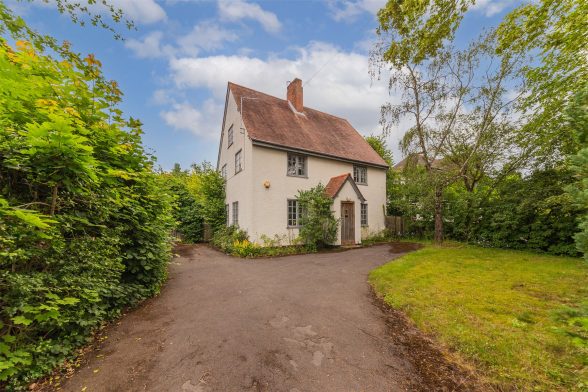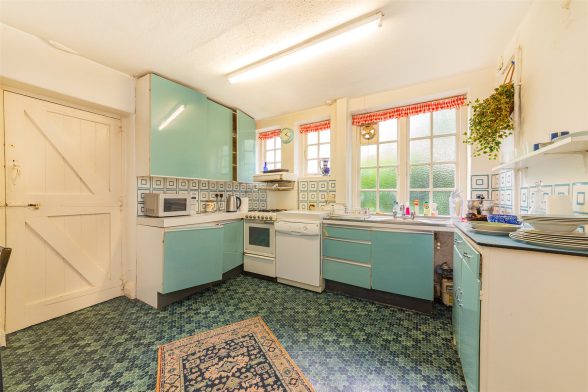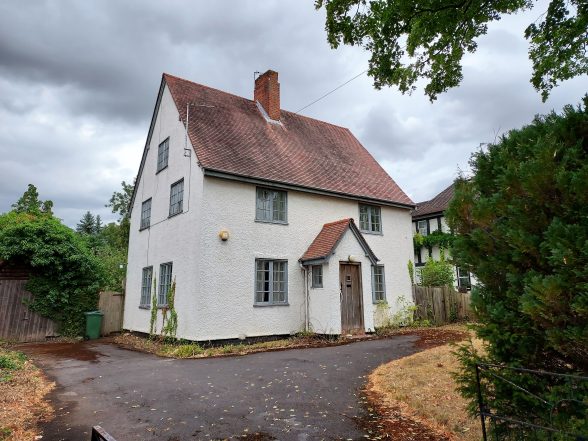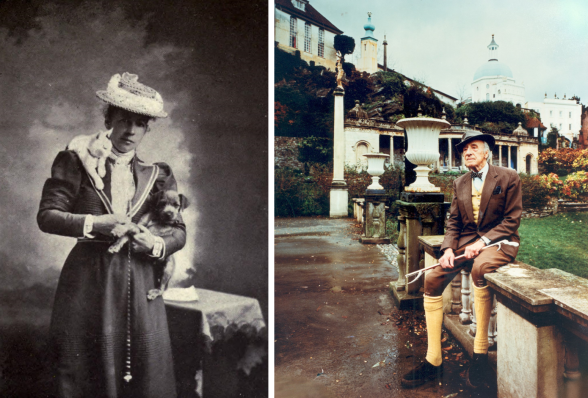This website uses cookies
This website uses cookies to enable it to function properly and to analyse how the website is used. Please click 'Close' to accept and continue using the website.



A rare 1920’s ‘bohemian’ cottage in Oxford by the esteemed architect Clough Williams-Ellis is the subject of a recent spot listing bid by C20 Society, in an effort to save the building from potential demolition.
34 Davenant Road was built in 1923 to designs by Sir Bertram Clough Williams-Ellis (1883-1978). Best known for his Italianate holiday village of Portmeirion in Wales (started in 1925), Williams-Ellis came to architecture relatively late and studied at the Architectural Association (AA) for just 3 months before he left to set up his own practice. His practice flourished between the wars and took on many domestic commissions. He was also a prolific author and campaigner for the environment through books such as ‘England and the Octopus’ (1928), and as a founder member of the Campaign for the Preservation of Rural England in 1926.

The Oxford house was commissioned by the early twentieth century feminist Lily Dougall and her same-sex partner Sophia Earp. Lily Dougall (1858–1923) was a Canadian author and feminist, she was educated in New York City and at both the University of Edinburgh and St. Andrew’s University in Scotland. She lived in Montreal from 1897 to 1903 until she finally settled down in Cumnor, near Oxford in 1911. While there, she co-habited with her partner, Sophie Earp and became the center of a group that was dedicated to thought and conversation.
The house was subsequently owned for a long time by Anthony Kirk-Greene, a famous Africanist, and his wife Helen. A.H.M Kirk-Greene was one of the leading Africanists at Oxford for about four decades and a fellow at St Antony’s College from 1972 until his retirement in 1992. He was previously Senior District Commissioner and Secretary of State for the Colonies from 1950–1960, and a Senior Lecturer at Ahmadu Bello University, in Nigeria, from1961 to 1965. He was known for his works on 20th century British colonial history. He was president of the African Studies Association of the UK from 1988 to 1990, and vice-president of the Royal African Society.

The house is located outside a conservation area and was sold in November 2021. The Society has been alerted to a pre-application for demolition and new build, prompting a listing application in December 2022.
Professor Elizabeth McKellar, President of SAHGB, has researched the house and nominated it for inclusion on Oxford’s local list (The Oxford Heritage Asset Register, OHAR) in July 2022, but this application has yet to be processed. Recent sales photographs suggest that its interiors survive well, retaining the original dog-leg stair – with timber treads and risers, newel post and handrail – and simple timber ledged and braced doors.
Mckellar writes: ‘Williams-Ellis was famous for designing in almost every style available and 34 Davenant Road is a good example of the plain, modern bohemian cottage; a fitting home for its unconventional owners…[It] is a now increasingly rare survivor of the once-common unshowy but individually architect-designed medium-sized houses which lined the streets of outer North Oxford.’

Image: Wikimedia Commons and Portmeirion Village

Become a C20 member today and help save our modern design heritage.